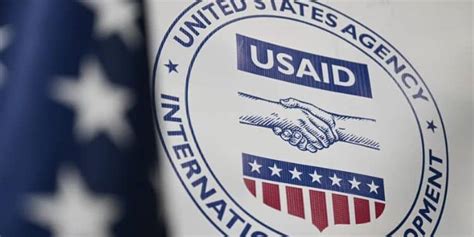News
US Charges Kenyan with Stealing Sh83 Billion from USAID-Funded Project at KEMSA
The USAID-funded programme was specifically designed to ensure HIV/AIDS patients in Kenya had reliable access to the commodities they needed for care and treatment.

A Kenyan national has been charged in the United States with orchestrating a brazen scheme to steal HIV test kits and other critical medical supplies worth millions of dollars from the Kenya Medical Supplies Authority, commodities that had been paid for by American taxpayers under a massive Sh83 billion health programme.
Eric Ndungu Mwangi, 40, faces up to 20 years in prison on multiple counts after US prosecutors unsealed an indictment detailing how he systematically diverted medical supplies meant for HIV/AIDS patients in Kenya and sold them to an accomplice in South America for personal profit.
The charges, filed in the District of South Carolina, paint a picture of calculated theft that undermined a vital public health mission and betrayed Kenyans living with HIV/AIDS who desperately needed the stolen commodities for their treatment and care.
US authorities say the investigation, led by the Office of the Inspector General for the US Agency for International Development, focused on KEMSA’s Medical Commodities Programme, a roughly Sh83 billion initiative designed to establish a secure and sustainable supply chain for HIV/AIDS treatment commodities, as well as family planning, nutrition and malaria supplies.
According to court documents, Mwangi and his company, Linear Diagnostics, began stealing HIV test kits and other medical supplies from KEMSA in 2014. The stolen goods were then sold to Davendra Rampersaud, a 42-year-old Guyanese national who operated Caribbean Medical Supplies in Guyana.
Prosecutors say Rampersaud fraudulently obtained official authorization in 2015 to operate as a licensed medical distributor, which enabled him to secure a lucrative sole-source contract with Guyana’s Ministry of Health.
He then sold them the very same commodities he was purchasing illegally from Mwangi, commodities that American taxpayers had funded for Kenya’s HIV/AIDS response.
Between 2015 and 2019, Rampersaud paid Mwangi over Sh22.7 million for the diverted medical supplies before reselling them to his own government at a profit. The scheme effectively saw life-saving HIV test kits meant for Kenyan patients ending up in Guyana’s health system through a criminal supply chain.
“This was an incredibly complicated investigation, spanning years and an ocean,” said US Attorney Bryan Stirling for the District of South Carolina. “These defendants jeopardized a vital public health mission and caused a significant loss to the American taxpayers.”
Mwangi’s troubles extend beyond American courts. In February 2021, Kenyan authorities arrested him on related theft and fraud charges, and he is currently awaiting trial in Kenya.
The unsealing of the US indictment, which had been kept secret to protect the ongoing investigation, adds another legal battle for the businessman.
His co-conspirator Rampersaud has already faced justice. In January 2023, American authorities arrested him during a flight layover in Miami as he attempted to travel back to Guyana.
He was taken to Charleston, South Carolina, where he pleaded guilty to conspiracy and to stealing health commodities paid for by USAID.
US District Judge Richard Gergel sentenced Rampersaud to time served, three years of supervised release, and ordered him to pay an Sh10.8 million fine.
The case highlights vulnerabilities in the supply chain management of donor-funded health programmes in Kenya, particularly those channeled through KEMSA.
The state corporation has in recent years been dogged by allegations of mismanagement, theft and corruption, with several scandals involving the diversion of medical supplies meant for public health facilities.
The USAID-funded programme was specifically designed to ensure HIV/AIDS patients in Kenya had reliable access to the commodities they needed for care and treatment.
The theft of these supplies not only represented a financial loss but potentially put lives at risk by creating gaps in the medical supply chain.
The investigation benefited from substantial international cooperation, with assistance from the Justice Department’s Office of International Affairs, the State Department’s Regional Security Offices in Nairobi and Georgetown, US Customs and Border Protection, and Homeland Security Investigations.
Assistant US Attorneys Sean Kittrell and Dean Secor are prosecuting the case. Under American law, Mwangi is presumed innocent until proven guilty beyond reasonable doubt in a court of law.
Kenya Insights allows guest blogging, if you want to be published on Kenya’s most authoritative and accurate blog, have an expose, news TIPS, story angles, human interest stories, drop us an email on [email protected] or via Telegram
-

 Grapevine2 weeks ago
Grapevine2 weeks agoRussian Man’s Secret Sex Recordings Ignite Fury as Questions Mount Over Consent and Easy Pick-Ups in Nairobi
-

 News7 days ago
News7 days agoTHE FIRM IN THE DOCK: How Kaplan and Stratton Became the Most Scrutinised Law Firm in Kenya
-

 Investigations1 week ago
Investigations1 week agoMulti-Million Dollar Fraud: Three Kenyans Face US Extradition in Massive Cybercrime Conspiracy
-

 Economy1 week ago
Economy1 week agoIran Demands Arrest, Prosecution Of Kenya’s Cup of Joe Director Director Over Sh2.6 Billion Tea Fraud
-

 Business1 week ago
Business1 week agoA Farm in Kenya’s Rift Valley Ignites a National Reckoning With Israeli Investment
-

 Africa1 week ago
Africa1 week agoFBI Investigates Congresswoman Ilhan Omar’s Husband’s Sh3.8 Billion Businesses in Kenya, Somalia and Dubai
-

 Grapevine3 days ago
Grapevine3 days agoA UN Director Based in Nairobi Was Deep in an Intimate Friendship With Epstein — He Even Sent Her a Sex Toy
-

 Politics2 weeks ago
Politics2 weeks agoSifuna, Babu Owino Are Uhuru’s Project, Orengo Is Opportunist, Inconsequential in Kenyan Politics, Miguna Says
















